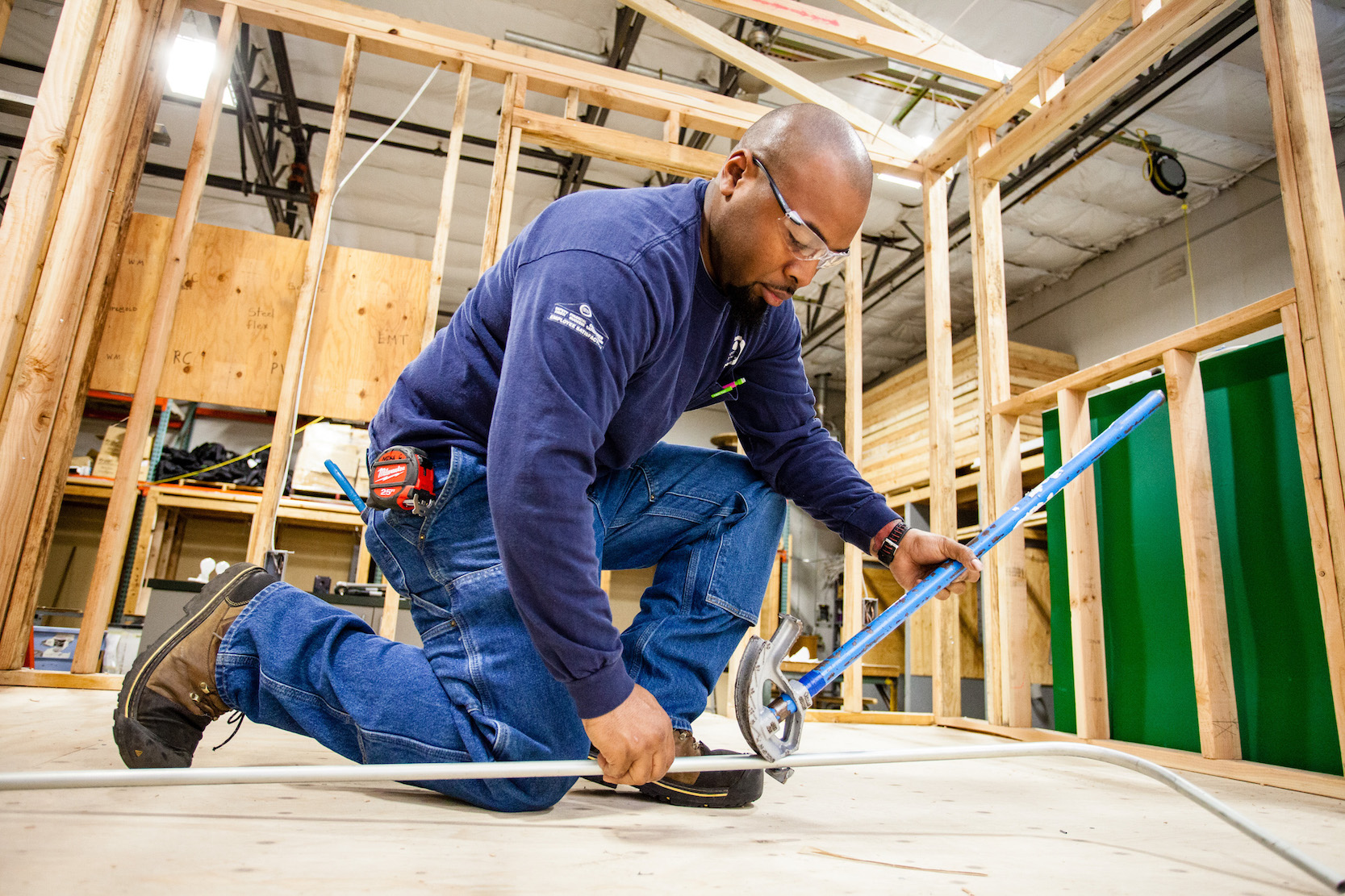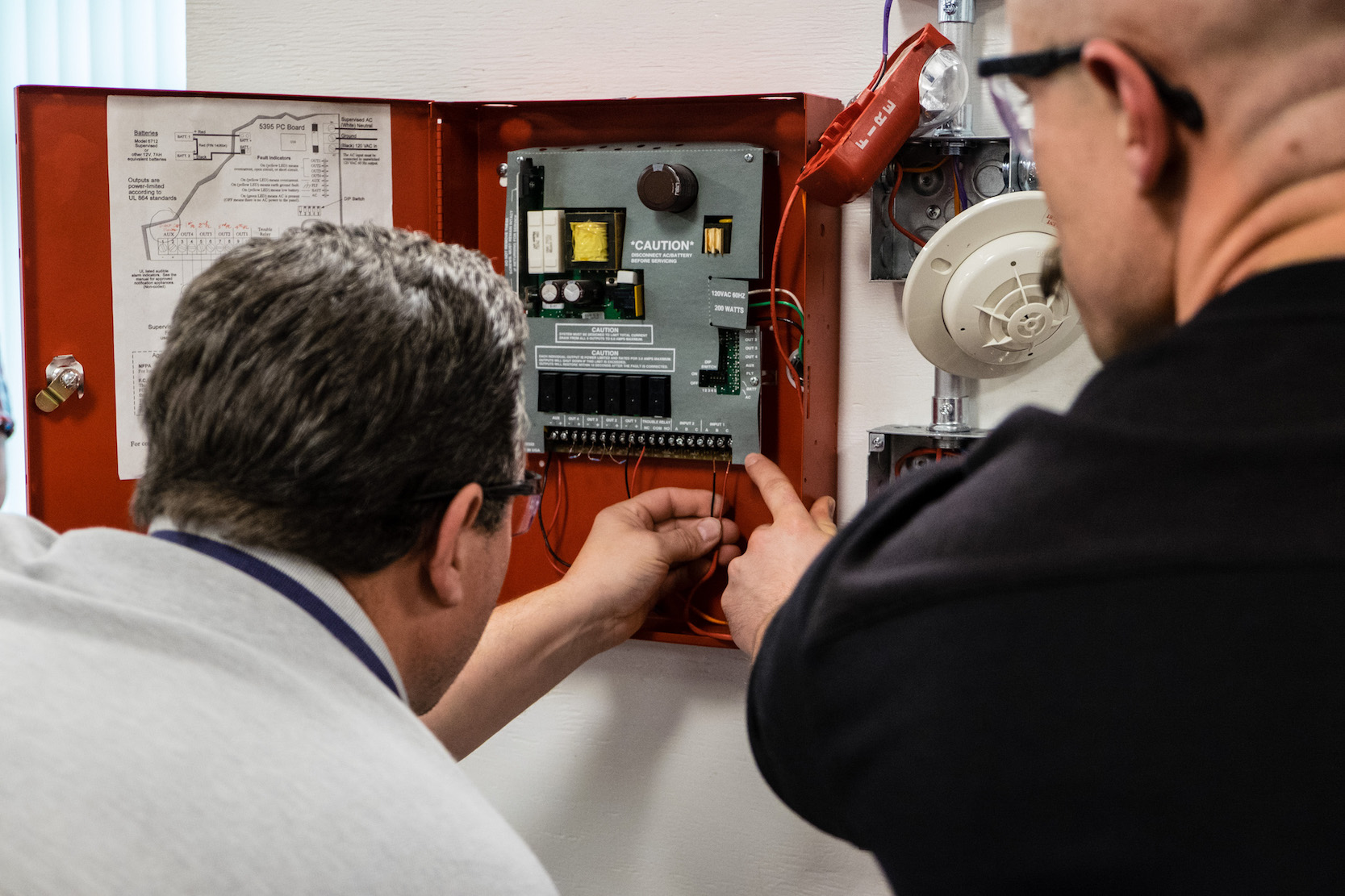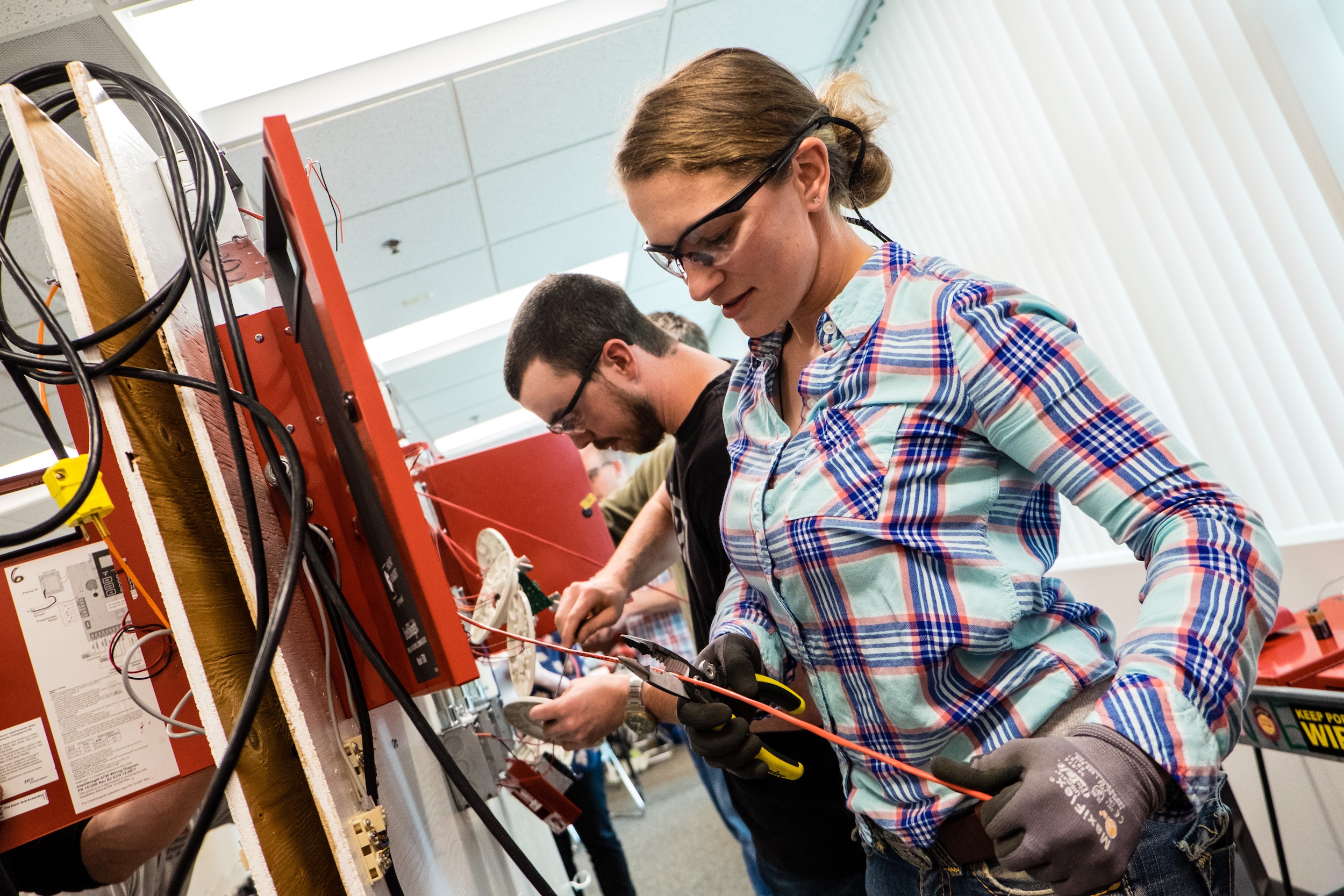NECA/IBEW relationship fosters rigorous training, shared commitment to customer satisfaction.
Let’s just say you’re all amped up to become an electrician. Can you just go out and buy some wire snips and a pair of needle nose pliers and start bending conduit?
Nope. Not if the state of Oregon has any say in the matter, and they do. Law requires a license to work on 110/120 volts or more, and a license requires four years of study and on-the-job training as an apprentice, says Gary Young, business manager for Local 48 of the International Brotherhood of Electrical Workers (IBEW).
Now, let’s just say you need to hire an electrician. Sure, you can find someone with a license, but how do you know what’s behind that license? Timothy Gauthier has a ready answer. Gauthier, executive manager for the Oregon-Columbia chapter of the National Electrical Contractors Association (NECA), would encourage you to hire a contractor that has completed training created, sponsored and managed jointly by NECA and the IBEW. Gauthier says contractors have been working closely for more than 100 years with the IBEW to create and deliver training at a shared training facility east of the Portland International Airport.
“The law requires a four-year apprenticeship, but our deal with the IBEW requires five years of apprenticeship,” Gauthier says. “As apprentices go through training, they have to show that they’re competent in materials and written knowledge, but also hands-on skills in the field.”
It’s a rigorous hill to climb, and not all who apply can get in. Testing and interviews determine priority placement on an admissions list.
“We tell apprentices, ‘We hire you for your brain power as well as your manpower’,” Gauthier says.
An active outreach effort also ensures diversity, with 20 percent of members from minority groups, and 13 percent women. Mikhael Carter grew up in Parkrose, completed a four-year degree in business administration and drifted into a series of jobs that didn’t exactly set off sparks. He kept thinking about his experience framing buildings during summers, and the informational session he had taken from the IBEW.
“When I was framing, we would have to hire someone to come out and wire it,” Carter says. “I was always fascinated, but scared of it. I liked the idea of electrical because it was not so physically hard. They would tell me the more you work with your brain, the longer you’ll last. Electrical is more mentally demanding.”
Carter is halfway through his apprenticeship. He says he learns something new every day. On a recent job at Intel in Hillsboro, he wired his first transformer one week, installed motor panels and heat trace wiring the next.
Carter has become a true believer in the NECA/IBEW training partnership.
Mikhael Carter believes the skills learned in a tade apprenticeship program will serve anyone well in an unsure world.
“College is great,” he says, “but the way the world is going, you really need to develop a trade or skill. The days of getting a high school diploma and getting a job are over. I’d encourage anyone to join any apprenticeship program you can, no matter what the trade.”
The IBEW’s Young says the training center and apprenticeship programs receive no government support.
“We make sure apprentices get exposure to everything in the training center, because you can’t always be sure that it will get covered out in the field,” he says.
“We ensure a basic education – pipe bending, reading prints, doing calculations to figure out what you’ll install and how to install it. There’s a lot of math involved.” Fees from NECA’s 90 contract members and IBEW’s roughly 4,000 electricians support the center, which includes a mockup of a wood-frame house.
“We did it so our people could come in and get experience of drilling holes in studs and running wire to panels and lights and such,” Young says. “It’s the real deal.”
The training center also serves continuing education needs for contractors. Gauthier says local and national instructors deliver seminars at least once a month, on topics ranging from estimating and project management, to accounting for construction and managing change orders.
Gauthier notes that the NECA/IBEW partnership fosters a sense of shared purpose, where contractors and electricians alike commit to fulfilling their responsibilities. Avoiding labor-management strife helps avoid dysfunctional behavior on the job site, Gauthier says.
“The biggest strength that our industry has, we want to take care of our business and not disrupt the job owner,” Gauthier says.
“Since 1920, we have had binding arbitration. We don’t want our customers to deal with our internal labor-management issues.”
And by “customers,” he means people with every imaginable electrical need – from major industrial or commercial installations, down to residential wiring jobs.
Young knows customers may think they’re saving money by tilting toward a non-union shop.
“With us, we may cost a little more up front, but you’re ultimately saving money because of our efficiency,” he says. “We do it right the first time. There won’t be a callback.
“At the end of the day, you get what you pay for.”



